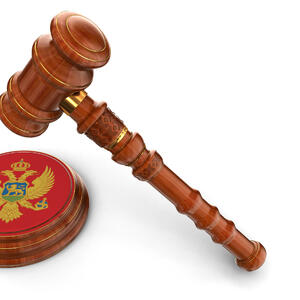The Supreme State Prosecution Service (SSP) reacts to the text on the number of indictments of the Special State Prosecutor's Office (SST) and the Higher State Prosecutor's Office (SST) that ended with a final conviction, and we collected this data through the Free Access to Information (FIA) from the High Court in Podgorica. So, if VDT needs to argue with someone, then it is the court that gave us the data.
The fact that the Supreme State Prosecutor's Office, reacting to our text, is reviewing the statistics of the High Court in Podgorica, can only lead to the conclusion that there is a lack of communication between these two authorities.
In order to be precise about what we received as a response from the High Court, we will also present to the public the response to the request under SPI in a scanned version, which you can find on the website cin-cg.me.
The Supreme State Prosecutor's Office also reacted to the data related to the Basic Prosecutor's Office in Kotor. And we got that information according to the SPI, directly from the prosecutor's office in Kotor.
It is inadmissible for VDT to attribute the data obtained from the courts and prosecutor's offices to the ignorance of the author of the text.
It is also worrying that VDT manipulates the facts in its response. While in our research we talk about indictments that resulted in final convictions, VDT talks about the number of persons who were acquitted. And even laymen know that there can be more than one person on one indictment. Further, in its response, the VDT teaches us that it should have compared the data obtained from the High Court with the prosecution's reports. This, however, can be misleading, because in the reports of the prosecutor's offices, it is said how many persons the proceedings have been initiated against, and in the reports of the courts, there are statistics related to the number of indictments. After all, when we asked the VDT and SDT for the purposes of this research to provide data on SPI, they referred us to the courts, so it was impossible to make such a parallel.
In the end, VDT's claim that there are much fewer acquittals than is shown in our text is manipulation, because we did not even write about it. We only provide statistics on proceedings concluded with final convictions. We especially pointed out that even more devastating than that statistic is the fact that a negligible number of proceedings related to corruption at the highest level and organized crime ended with a conviction. After all, this is what the relevant international institutions, which monitor the situation in the Montenegrin judicial system, also claim.
It is particularly worrisome that the VDT, SDT, as well as other prosecutor's offices are hiding a large amount of data, including those concerning the statute of limitations on criminal reports, of which there is apparently a huge number. According to our data, cases for serious criminal offenses become obsolete, which further complicates the establishment of the rule of law in the country.
In the reaction of the VDT, it is emphasized that the new Prosecutorial Council (PC) should not deal with these issues. And precisely the topics that we raised in our research should be the focus of the new TS, so that Montenegro finally gets an efficient prosecutorial system, which until now has been one of the key obstacles in Montenegro's progress in negotiations with the European Union (EU ).
Journalistic research on the judiciary is of the highest interest to the public, and the transparency of institutions could help reforms in this area. Instead of reacting baselessly, VDT should initially present the data that we are unsuccessfully looking for under SPI, because the public has the right to know how an institution that has been hiding facts about its work that are of general importance for decades functions.
Bonus video:






